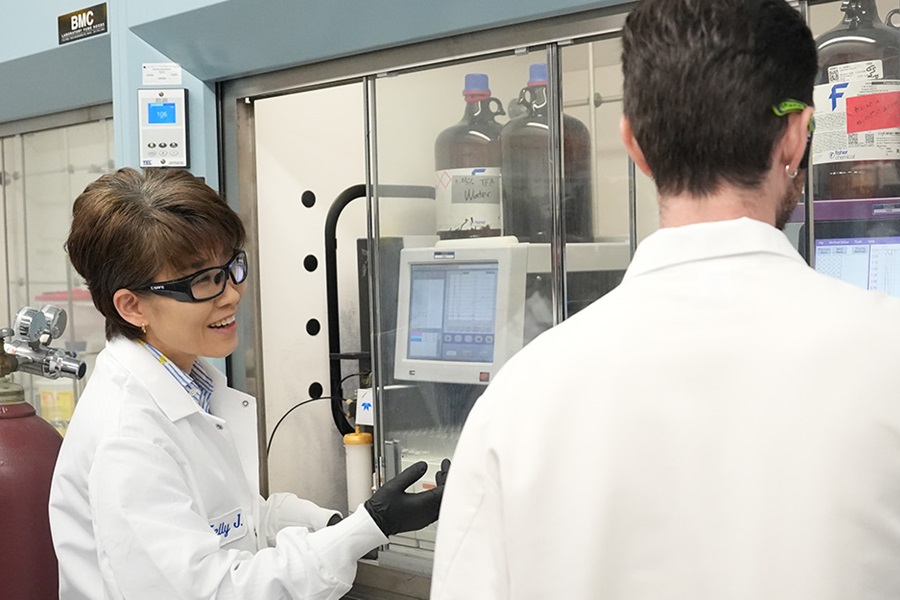Why Abzena?
Our focused approach.
In The Medicine Maker’s latest article, Erika Kovacs, Senior Director of Bioassays at Abzena, dives into the complex landscape of Antibody-Drug Conjugate (ADC) development. Kovacs explores the unique challenges in ADC design, production, and regulatory compliance and highlights innovative strategies to address these hurdles.
In the intricate and highly specialized arena of targeted oncology therapies, ADCs hold promise for safer and more effective treatment options. Developed as “biological missiles,” ADCs are composed of a monoclonal antibody covalently attached to a cytotoxic drug, aiming for high specificity in targeting and potent effects in eliminating cancer cells.
The maturation of ADC technologies has broadened their scope of use, with a growing number of ADCs being approved or in late-phase clinical trials for various tumor types. These developments are driven by the increasingly diversified antigen targets and bioactive payloads, as well as enhancements in intratumor distribution and activation, which can potentially improve the anticancer activity for difficult-to-treat tumor types.
However, the development of effective and safe ADCs is complex and requires a multidisciplinary approach. One of the key terms that guide the ADC development process is developability. This term encapsulates a range of considerations that go into finding the best lead molecule for targeting a specific disease. It’s not just about creating ADCs; it’s about rigorously assessing them from various angles, including functionality, specificity, safety, and stability.
When discussing the functionality of ADCs, we must not merely consider their ability to target and destroy cells; we need an all-encompassing evaluation using a range of methodologies. High-throughput screening quickly distinguishes promising ADC candidates by assessing important parameters, such as binding affinity and payload release, while cytotoxicity assays provide insights into cell viability post-ADC exposure, revealing both lethal and sub-lethal effects.
